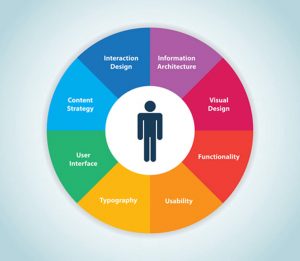The benefits that social media data provides can be enumerated as under
Increased registration rates
In the speed age of technology, internet users resist filling forms to sign up or register for any service. When they are forced to spend time filling a form, the users tend to dissociate from websites or the web-based services. Under such circumstances, social logins can do the trick with a single click of the mouse. This quicker and less obtrusive method increases the rate of registration by allowing the customers to log on using their preferred social media account.
Targeted marketing
Social data helps design specific campaigns to target specific groups of users and thus, achieve a higher conversion rate through inbound marketing campaigns and online ads.
Better strategic decision making
The high quality social media data about customers can help companies to make well-informed decisions about re-designing or re-packaging products, marketing strategies, and future developments.
Personalized user experiences
Social media data can help online businesses to gain a competitive edge through insights about the users’ personalized experience when they log on to your website. While customers expect personalized user experiences online and that they can be made possible through the use of social data, according to data collected by econsultancy.com. In the User Experience Survey Report published in 2013, it was mentioned that only 55 percent of companies are currently conducting any online user experience testing. It should be noted that more personalized experiences can help build trust among the website visitors and in the long-term, result in higher conversions.
Decreased costs of customer research
Traditionally, large-scale market research incurs huge costs but by accessing users’ social data, this can prove to be much more cost-effective. Social media data also helps to better understand the customers’ online behaviors and habits.
Better quality offerings
Social data can also help in crafting better products and services in the future by using the knowledge of customer needs and preferences. This in turn, might translate to better sales in the future as also increased customer satisfaction.
Better lead conversion and customer retention
Social media is capable of creating more meaningful interactions with users on a personalized level. With businesses offering solutions to customers according to their likes and preferences derived from their search and browsing habits, it can actually lead to better lead conversion rates and in the long run, customer retention. Addressing user feedback received on social media and responding to it effectively can also help create better perception among the other users apart from satisfying the concerned customer(s).
Social Media Data: The Game-changer
In today’s highly competitive scenario, having access to detailed information about the users or customers is vital to better serve their needs and offer more value than any of the competitors. Analytics that help businesses determine how to direct their marketing campaigns, rely heavily on the data collected using social plug-ins.
Since, user consent is required for social logins, there is more credibility and authenticity attached to this data than what is collected from third party sources.
Social Media Data: The Current Scenario
The benefits that can be derived from Big Data and social media data are immense. The market statistics clearly point out that it is not just the large enterprises but also the small and medium-sized businesses that are actively involved in the Big Data game. Companies are increasingly exploring different ways of leveraging Big Data in the most effective way possible.
This can be supported through a research report sponsored by Dell and published by Competitive Edge Research. The report found that 96 percent of mid-market organizations are either already involved in a Big Data project or have plans of initiating one by next year.
With organizations across all spectrum’s actively engaging and investing in social media data, it is now clear that Big Data is no longer a hyped futuristic perception but a real-world opportunity which, if exploited tactically, can result in increased operational efficiency and improved decision making.
Image Credits: theaterchurch | usabilitygeek





















